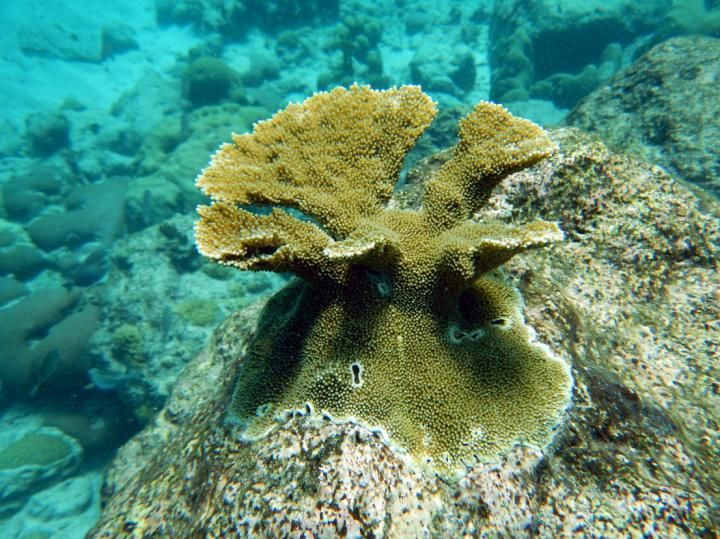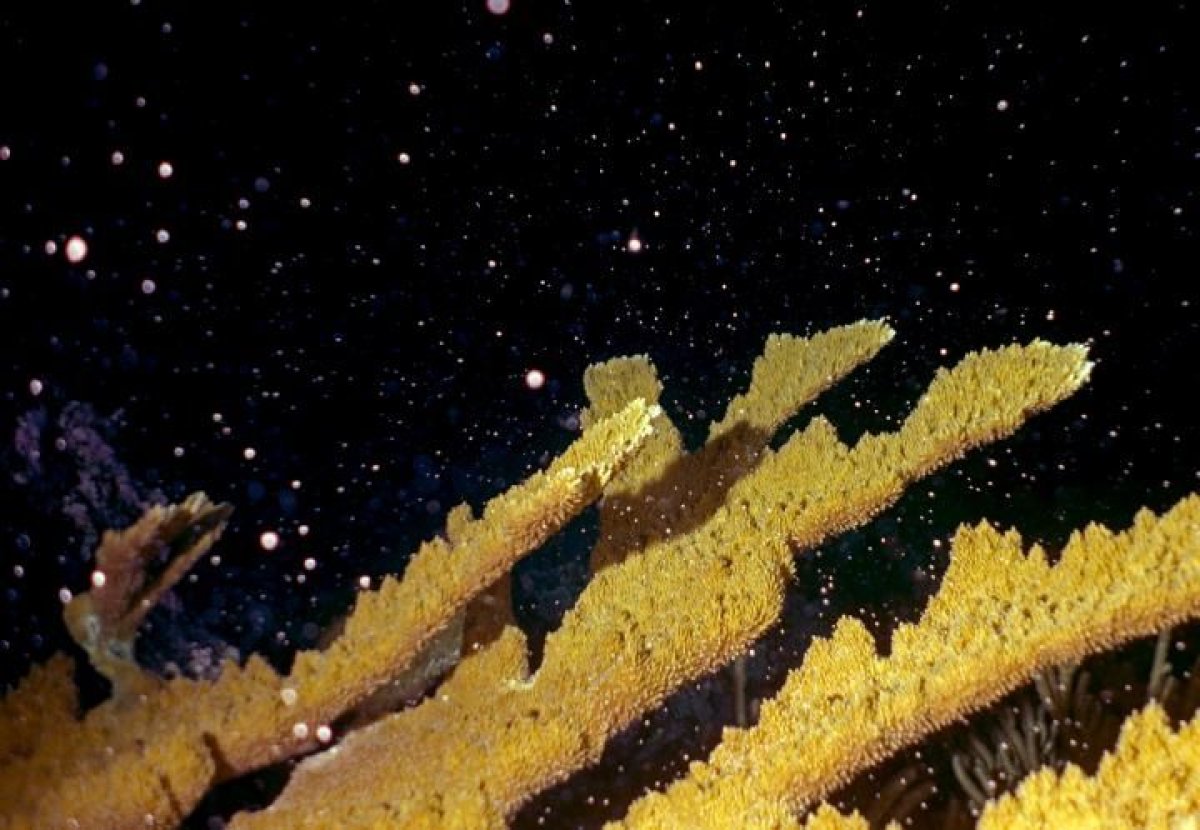
Warming temperatures, water pollution and a shortage of algae-eating grazers have all conspired to hurt Caribbean coral reefs, which have declined by more than 50 percent since the 1970s. But in a rare bit of good news, an endangered species called elkhorn coral that was reared in a lab has been replanted into a reef—where it reproduced on its own.
As described in a study published in the journal Bulletin of Marine Science, this is the first time a lab-bred coral has reproduced in the wild.
The researchers behind the project, led by a non-profit called SECORE, collected sperm and eggs from elkhorn corals (Acropora palmata ) in the fall of 2011, off the island of Curaçao, in the southern Caribbean. It's at this time—specifically, a few days after the first full moon in August—that these corals release their germ cells. The scientists captured these and released them in a lab on the island. Here the sperm and eggs combined to create fertilized free-swimming larvae, which over the course of several days settled on the aquarium's bottom and began growing into coral.

Two weeks later, the scientists planted many of the tiny corals on a reef off the island, where the little creatures thrived. In fact, in a second study that focuses on the rearing technique, published in the journal Global Ecology and Conservation, the researchers found that corals planted in the wild reef were 6.8 times more likely to survive for several years, compared to those raised in the lab.
Other efforts to improve reefs have generally consisted of coral "gardening," wherein pieces of coral are removed from the wild, grown in the lab and then returned. But SECORE's technique is unique in that corals are allowed to breed, producing a new source of crucial genetic variability, says study first author Valérie Chamberland, coral reef ecologist with SECORE and Curaçao's Carmabi Marine Research Station, in a statement.
Uncommon Knowledge
Newsweek is committed to challenging conventional wisdom and finding connections in the search for common ground.
Newsweek is committed to challenging conventional wisdom and finding connections in the search for common ground.
About the writer
Douglas Main is a journalist who lives in New York City and whose writing has appeared in the New York ... Read more
To read how Newsweek uses AI as a newsroom tool, Click here.








